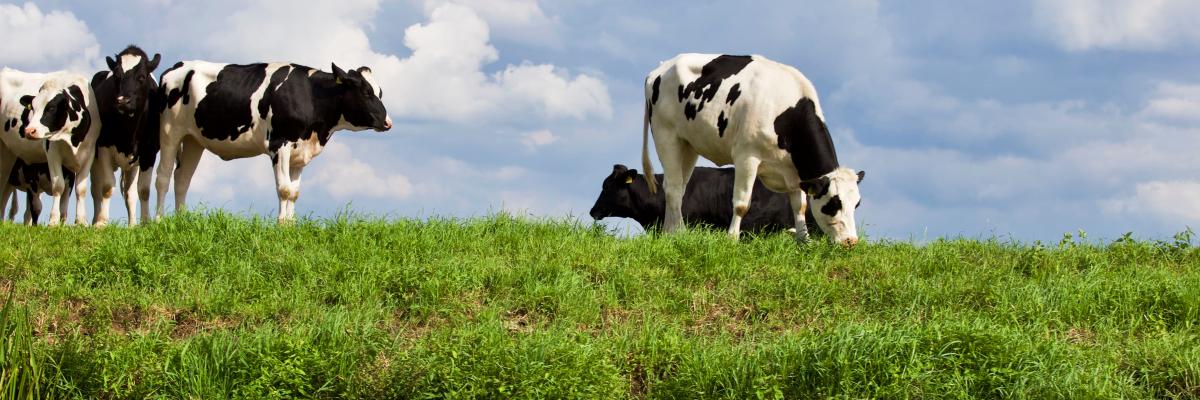
Phosphorus Survey for UK Dairy Farmers, Nutritionists and Advisers
19 February 2019
The University of Reading, in collaboration with Harper Adams University, is running a project aiming at investigating the potential to reduce phosphorus losses from dairy farms, with consequent benefits for the environment and reduction of feeding costs. This project is a PhD studentship funded by AHDB Dairy.
Phosphorus (P) loss is an important environmental issue; when manure rich in P is applied to land above the crops’ requirements, the excess P runs off into waterbodies, and contributes to water pollution, with degradation of quality and reduction in aquatic biodiversity. Overfeeding P increases its elimination in the dung, making manure even richer in P; this is a costly and unsustainable practice, as P is a limited global resource. An AHDB-funded survey of UK dairy farms showed that cows are generally fed P on average in excess of 20% of what is recommended to support optimum production and health - this excess reaches 30% in early lactating cows. In 2014 DEFRA identified that if we feed more closely to cow nutrient requirements (including P) the average UK dairy farmer could save £7700 annually. As research has shown overfeeding has no proven benefit but obvious negative consequences, both economic and environmental, why are we overfeeding phosphorus?
To help us answer this question we ask you to fill in a questionnaire (you can access via the link below), designed to gain your insight on what drives phosphorous overfeeding. This survey will take less than 20 minutes of your time but will provide valuable information for our research and for the next phase of the project, which will entail a calculation of the farm gate P balance in a sample of selected herds to identify best P management practices. If you would also like to participate in phase II - to have your farm gate P balance calculated and receive our findings on best practices for P management, please contact Brad Harrison (b.harrison@pgr.reading.ac.uk) expressing an interest.
|
Terms and Conditions You have been selected through self-volunteering. Your identity will not be revealed to anyone. Participation is voluntary and you are free to withdraw any time before data is analysed (01/03/2019). If you wish to withdraw, please contact Bradley Harrison (b.harrison@pgr.reading.ac.uk) along with the reference you provide during online questionnaire. All data will be stored securely in a locked computer and will be destroyed at project end (no later than 01/12/2023). Findings will be published in the PhD thesis, AHDB reports and academic journals but this will not affect your anonymity. By completing this questionnaire, you are acknowledging that you understand these terms and conditions of participation in this study and that you consent to these terms |
Thank you very much for taking time to take part in this survey!
Link to the Farmer Questionnaire:
https://readingagriculture.eu.qualtrics.com/jfe/form/SV_3F1zsWdJT0y0U1T
Link to the Nutritionist Questionnaire:
https://readingagriculture.eu.qualtrics.com/jfe/form/SV_dnhDAYsbyzWZ2Xb
Link to the Agronomist / Adviser Questionnaire
https://readingagriculture.eu.qualtrics.com/jfe/form/SV_73RIJnalr6W4R3D
Brad Harrison writes of himself:
"I have been studying in the field of animal science as far back as 2011 (a large proportion of my academic life). I am now currently in the second year of my AHDB funded PhD with the University of Reading. The PhD aims to identify the barriers to and facilitators for reducing phosphorus loss from UK dairy farms. Unbeknown to me at the time, this project would become my greatest challenge and yet also my greatest achievement. This is because in the UK, there is little literature on this subject area and therefore implementing the project has been difficult but highly rewarding. Aside from my PhD, I contribute to the Animal Dairy and Food Chain Science’s Journal Club at the University of Reading and I am a member of the British Society of Animal Science Early Career Council."


